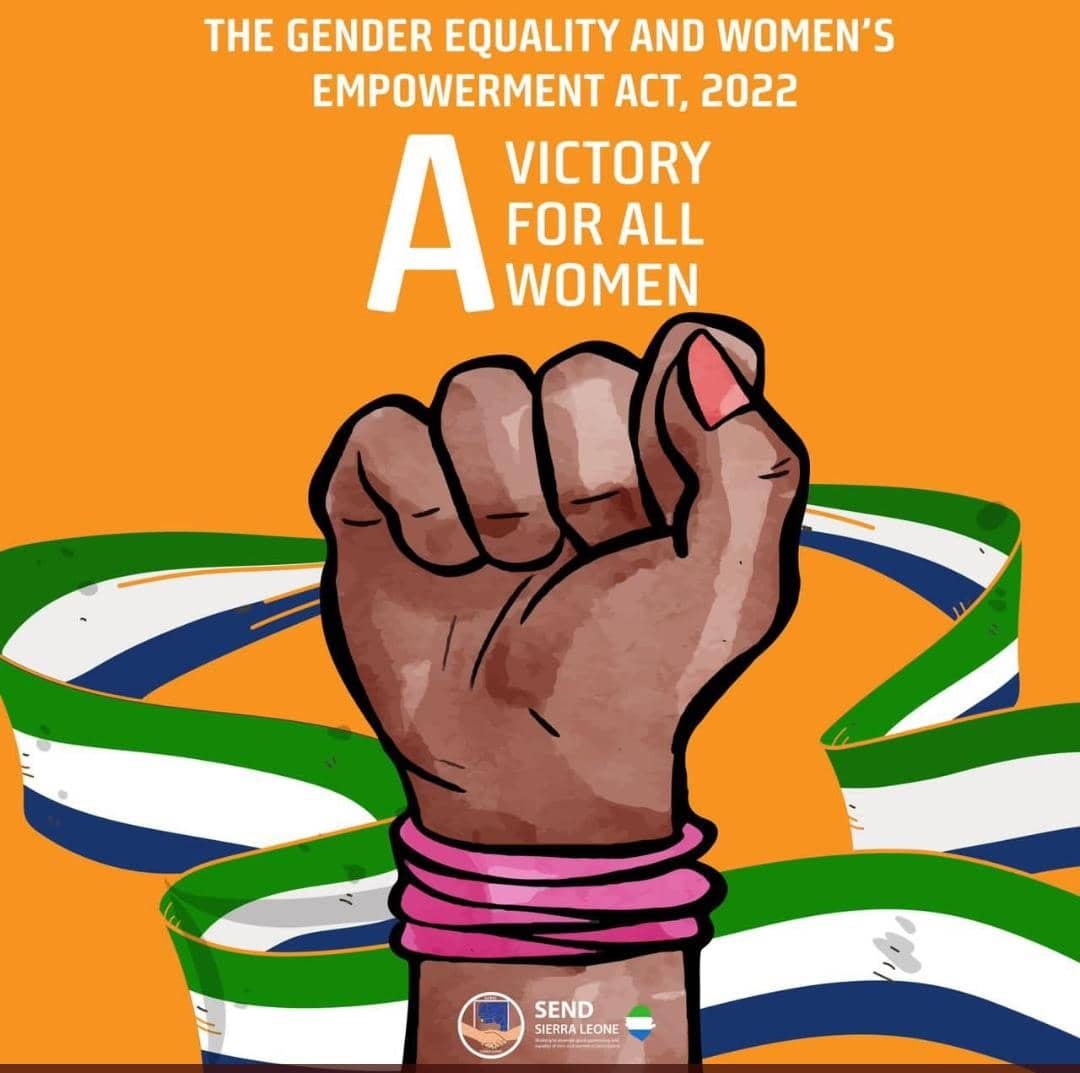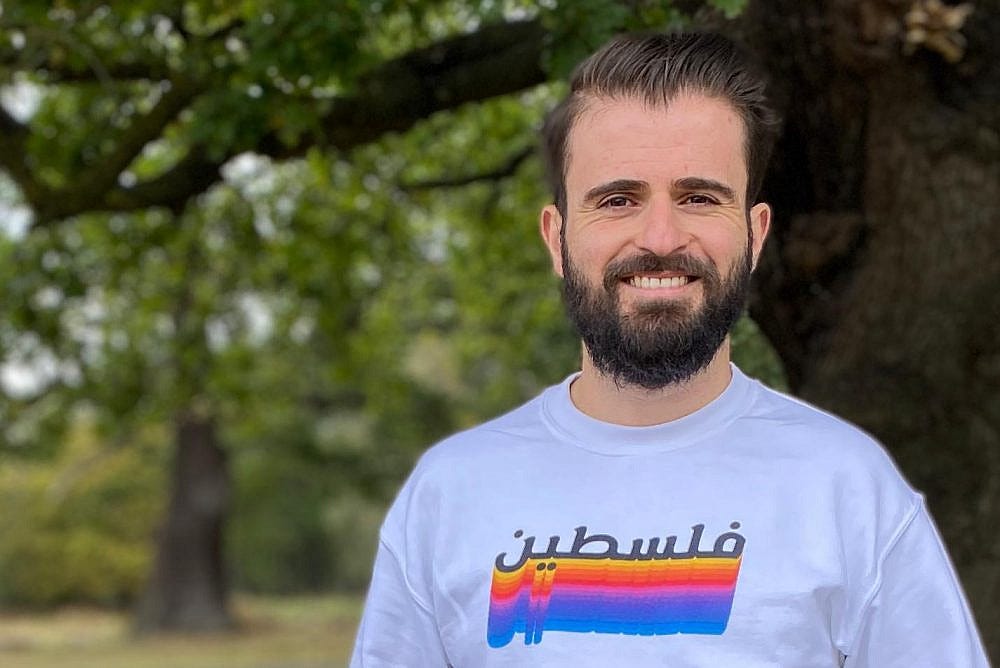Global Roundup: Sierra Leone Women's Rights Law, Brazil Indigenous Women vs GBV, Kenya LGBTQ+ Activists, Yemeni Women Defy Dress Regulations, Queerness & Palestinian Culture
Curated by FG Contributor Samiha Hossain
Sierra Leone has passed what has been described as a "groundbreaking" law designed to increase the number of women in positions of power in both private and public sectors. More than a year after the legislation was first tabled in Sierra Leone's Parliament, lawmakers voted unanimously to pass the Gender Equality and Women's Empowerment Act in November. On Thursday, Sierra Leonean President Julius Maada Bio signed the bill into law.
The Gender Equality and Women's Empowerment Act includes a legal requirement for all designated private and public bodies in the country to ensure at least 30% of their workforce is female. That ratio must be maintained across all levels within the organizations, including leadership roles. The act also specifies a 30% minimum quota of women for all elective and appointive positions in Sierra Leone's government or public offices, along with the requirement that every government department has its own gender unit within its planning office.
Under the new law, employers in Sierra Leone must provide at least 14 weeks of maternity leave as well as equal pay, training and treatment for women as compared to men. Moreover, employers are now legally required to prohibit discrimination on grounds of gender. For instance, the new law makes it illegal for an employer to fire a woman when she becomes pregnant. Any employer who discriminates against women in violation of the 30% quota or any other aspect of employment law faces a fine of at least 50,000 new leones (about 2,500 USD), and even potential prison time for institutions like banks that do not give women fair access to financial support.
Sierra Leonean Minister of Gender and Children's Affairs Manty Tarawalli says the law "will break the economic and political exclusion shackles for urban and rural women across the country." However, she also acknowledges that "more steps will have to be taken before the country can say fairness has been achieved across the genders,” as discrimination against women is rife.
Lutana Ribeiro is the only female chief of Parque das Tribos, an indigenous neighbourhood in Manaus, the capital of Brazil’s Amazonas state. UNFPA Brazil/Isabela Martel
Lutana Ribeiro is a member of the Kokama ethnic group, and the only female chief in Parque das Tribos, an indigenous neighbourhood in Manaus, the capital of Brazil’s Amazonas state. Sparsely populated and relatively isolated in terms of air, road and sea access, the state of Amazonas faces particular challenges in access to public services, including for sexual and reproductive health support and gender-based violence response. In the state of Amazonas, of all women killed intentionally by another person, more than one in five were cases of femicide.
Ribeiro, well known among her community as a staunch defender of human rights, recently facilitated a series of workshops for survivors of gender-based violence, which were attended by 50 women from the area. The workshops, run by the UN reproductive and sexual health agency, UNFPA, explored different types of violence and explained how to access local social support networks and available legal protection mechanisms.
After the first lecture, many women felt stronger. The next day, people said ‘enough’ to violence. These men will no longer do what they want with them, because now the women are more empowered. -Lutana Ribeiro
The workshops are aimed at training women from indigenous communities to help spread life-saving information among their friends, family, and peers. Children also joined in recreational activities so their mothers could attend.
The initiative was very important for us to become increasingly stronger and have this support through dialogue and experience…We, as indigenous people, are not afraid. -Lutana Ribeiro
Kenyan activist and designer Edwin Chiloba was murdered earlier this month. Credit: Lawrence Leteipa/AP; Lito Howse/Xtra
The murder of Kenyan LGBTQ+ activist, model and fashion designer Edwin Chiloba has plunged the Kenyan LGBTQ+ community into intense grief. Earlier this month, Chiloba’s body was found in a metal box that was dumped on a roadside in Eldoret Town, the capital of Uasin Gishu County, where he studied and also ran his fashion business.
Mark Ninga, activist and digital media assistant officer at galck+, says that the community’s initial reaction was shock because it was very unexpected. Beyond shock, Ninga found himself grappling with the question of his own safety, but he was optimistic and persistent that the community would keep striving, despite the odds.
We still need to continue to fight and be loud and be visible because we cannot afford to put down our tools! We need to be armed with love and solidarity. -Mark Ninga
On January 11, human rights organizations, including Amnesty International, Change.org, galck+, Bold Network Africa, Q–Initiative and others, released a joint statement commending Kenya’s Directorate of Criminal Investigations on the quick investigation of Chiloba’s murder and urged further work on the pending cases of other LGBTQ+ Kenyans murdered in recent years. But Chiloba’s murder may serve as a weapon for the government to further cause huge harm to the community.
It is imperative that our leaders and media exercise restraint in their language and actions. Homophobic- and hate-based rhetoric by leaders and media sensationalization of Edwin Chiloba’s murder only serves to incite violence against queer Kenyans. We reiterate the call to #Repeal162 and 165 of the penal code that indirectly criminalizes consensual relations by LGBTQ+ persons creating an environment for violence to thrive and go unpunished. -Mark Ninga
For community members still reeling, what remains the biggest consolation in these hard times is the hope of knowing the investigations are moving forward and that important conversations may happen. Ivy Werimba, a communications and advocacy officer at galck+, hopes the investigation into Chiloba’s murder will provide closure for the case. She is also hoping that the online appeal #BreakTheCycleOfViolence that happened on Twitter will bring more attention to the different kinds of violence LGBTQ+ people face. Ninga believes that immortalizing the life and activism of Chiloba and other queer Kenyans who have been murdered remains with the community and its hope for liberty.
Fatima Muthanna, a Yemeni musician, posed for photographs donning traditional Yemeni attire as part of an internet campaign to challenge the Houthi dress code that permits women to wear all-black and loose-fitting abayas. (Fatima Muthanna Facebook page) via Arab News
Yemeni women have taken to social media to publish images of themselves dressed in colorful traditional gear, defying Houthi clothing restrictions and the militia’s escalating crackdown in regions under their control. Using the hashtag #Yemeni_identity, women inside and outside the country have posted pictures of themselves on Facebook and Twitter.
Our grandmothers used to wear colorful clothing and our heritage is full of colors and joy. Ansar Allah dictates our attire and wants to wrap us in black. Even if we no longer dress like our grandmothers. This is who we are today, and these are our colors. -Mozen Senan, Yemeni writer
The online campaign comes almost a week after Houthi authorities in Sanaa informed tailors that women’s abayas should be loose-fitting and black. These Houthi clothing prohibitions are part of a growing crackdown on women, who are also prohibited from moving between towns without male guardians. The group is known for abducting and charging artists with supposed moral crimes.
Ebtehal Al-Komani, a human rights activist, said women have historically never covered their entire bodies in black clothing.
Since December, the Houthis have abducted and imprisoned five prominent online personalities for criticizing the militia’s failure to alleviate poor economic conditions and combat government corruption. The Houthis are still holding Yemeni model and actress Entesar Al-Hammadi, who was kidnapped in a Sanaa street for allegedly breaking the Islamic dress code. Despite local and international calls for her release, the Houthis have reportedly held her in solitary confinement and tortured her.
Elias Jahshan via +972 Magazine
With his newly published, English-language collection “This Arab is Queer: An Anthology by LGBTQ+ Arab Writers,” editor Elias Jahshan seeks to reclaim the narrative on queer Arabs. While not shying away from a searing critique of patriarchy within the Arab world, the new anthology equally challenges the idea that Arabs are incapable of supporting LGBTQ+ people within their societies.
Jahshan was born and raised in Sydney, a child of a Palestinian father and Lebanese mother. There he began his career as a journalist and writer, including as an editor of the LGBTQ+ outlet Star Observer, and producing a short memoir “Coming out Palestinian.” He has been living in London for just over six years, where he now works as the social media and audience editor of The New Arab. In an interview for +972, Jahshan discusses editing the new anthology and navigating wider challenges as someone who has experienced the “double displacement” of being queer and a member of the Palestinian diaspora.
I can’t stand the mentality of Arabs saying that queerness is not part of Palestinian culture, that it is a Western import. We queer people have grown up everywhere and have existed forever. -Elias Jahshan
Jahshan discusses how Israel tries to drive a wedge between queer Palestinians and the wider Palestinian community, especially around Tel Aviv Pride. He believes that queer liberation is linked to liberation from Zionism. He also believes that patriarchy is to blame for the shame and stigma surrounding sex and references Mona’s essay in the anthology where she describes queer pleasure as an act of resistance against the oppression of sexuality.
I think [queer Arab pleasure] is a great act of resistance, because it shows that we’re taking control of our bodies. We’re taking pride in our sense of self and agency — and there should never be any shame whatsoever for having pleasure and having sex, because that is human nature. -Elias Jahshan
The majority of the support for the book has come from Palestinians, according to Jahshan. He says that Zionism and hasbara really try to enforce the idea that Palestinians are incapable of being progressive or open-minded and inclusive. Jahshan’s hopes are that one day Jaffa becomes a center of Palestinian culture in a free Palestine, as it was back in the 1930s and ’40s, where everyone can coexist together.
Samiha Hossain (she/her) is a student at the University of Ottawa. She has experience working with survivors of sexual violence in her community, as well as conducting research on gender-based violence. A lot of her time is spent learning about and critically engaging with intersectional feminism, transformative justice and disability justice.
Samiha firmly believes in the power of connecting with people and listening to their stories to create solidarity and heal as a community. She refuses to let anyone thwart her imagination when it comes to envisioning a radically different future full of care webs, nurturance and collective liberation.







Sounds like Sierra Leone has overtaken the United States in doling out sane human rights.